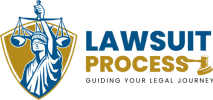Understand Lawsuits
Find Trusted Lawyers
Find Trusted Lawyers
LawsuitProcess provides clear insights into legal procedures, keeps you informed on current lawsuits, and connects you with top lawyers when you need help. Are you a lawyer? Get listed in our free premium directory and grow your visibility today.
Common Lawsuit Categories
Find trusted lawyers across the U.S. to guide you through every step of the lawsuit process.


Karen Friedman Agnifilo is a highly accomplished attorney with over three decades...
Criminal Defense Attorney
New York, NY


Jim Kramer is a partner at Simmons Hanly Conroy, having joined the...
Personal Injury Attorney
New York, NY


Kristi Schaeffer Dalling is the founder and lead attorney of Dalling Immigration...
Immigration Law Attorney
New York, NY


Marc Agnifilo is a highly experienced criminal defense attorney with an impressive...
Criminal Defense Attorney
New York, NY
Join the LawsuitProcess Lawyers Directory Today
Showcase your expertise and connect with clients searching for trusted lawyers. Get listed on LawsuitProcess to grow your visibility and build your reputation today.


